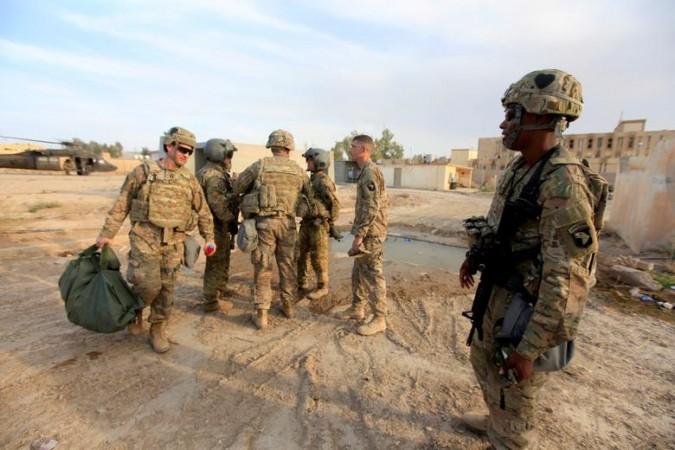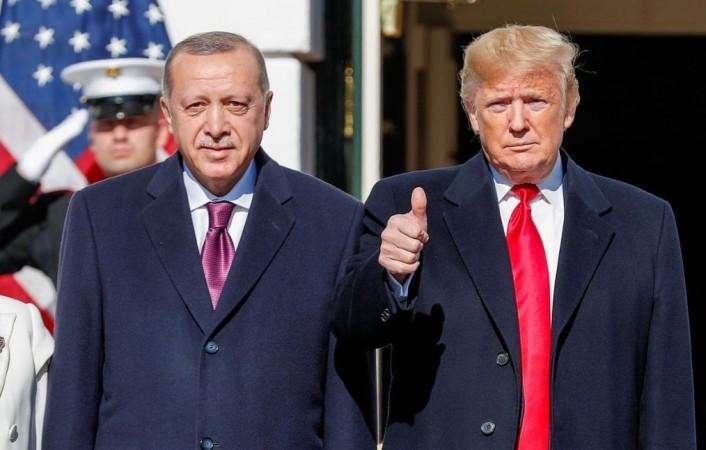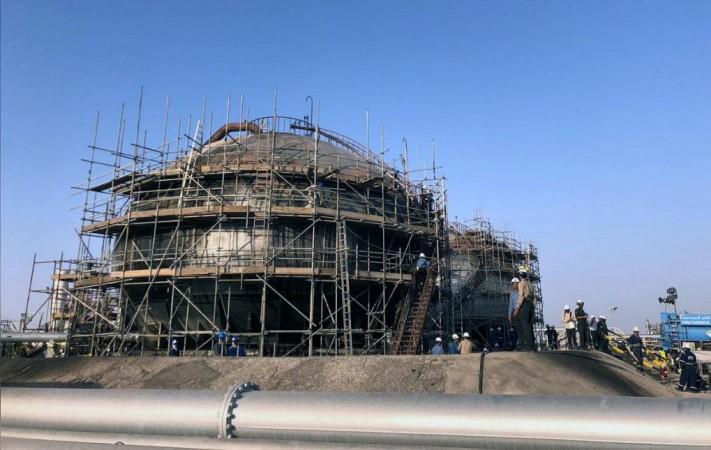US military has completed its pullback from northern Syria with only 600 remaining troops stationed for stable posture in the region as per the major decision by US President Donald Trump says Defence Secretary Mark Esper of Wednesday, December 4.

While Esper stressed that the number of troops deployed in the region is likely to fluctuate, he stated the 600-or so troops are 'relatively static' as for now. "It will be relatively static around that number. But if we see things happen ... I can dial up a little bit," Esper was quoted as saying to Reuters.
He also said the number is likely to reduce if European allies contributed by volunteering troops in Syria. "The coalition is talking a lot again. We could see some allies want to volunteer troops," Esper said adding, "If an allied country, a NATO country, decided to give us 50 people, I might be able to turn off 50 people."
US military had stated that the troops deployed in the region are to prevent the resurgence of the Islamic State. The terror group had warned US forces of retaliation after a military operation killed its leader Abu Bakr al-Baghdadi last month.
Trump's oil interests
However, US President Donald Trump had earlier contradicted the US military's statement by stating that the troops deployed in the regions are "only kept for oil."
"We're keeping the oil. We have oil. The oil is secure. We left troops behind only for the oil," Trump said.
Trump was widely criticised for the statement as a seizure of oil in foreign territory without permission from the sovereign authority constitutes a violation of international law. The White House later confirmed the President meant preventing ISIS to earn revenue by selling oil to conduct terror-related activities.
Trump's decision to withdraw its troops from northern Syria, his close ties with Turkish President Recep Tayyip Erdogan and his silence on the Turkish incursion despite US forces working with Kurdish fighters have been condemned by the State Department and the Pentagon for betraying US allies.

The Syrian Democratic Forces accused the US of breaching its commitments to the Kurdish forces as joint military cooperation between the two forces has fought the Islamic State in eastern and northern Syria. Military operation between the US and the SDF in March had led to the landmark end of the "caliphate" that was declared by al-Baghdadi in 2014.
However, Trump's close relations with Erdogan, US-Turkey ties have strained over its decision to buy the S-400 air defence systems from Russia despite US sanctions. The Russian defence systems, which are incompatible with NATO air defences, pose a threat to the US Lockheed Martin Corp's F-35 stealth fighter jets. The US had threatened imposing sanctions and threatened to remove Turkey from providing its F-35 purchases.
The US and regional security in Mideast
Esper's statement of the US military completing its withdrawal from northern Syria came a day after The Wall Street Journal citing unnamed US officials reported that the US is likely to deploy "dozens" more ships and around 14,000 troops in the middle east due to the ongoing tensions with Iran.
The Pentagon on Thursday released a statement that said no such mass deployment is planned to take place in the region. "To be clear, the reporting is wrong. The US is not considering sending 14,000 additional troops to the Middle East," spokeswoman Alyssa Farah tweeted.

However, US forces have increasingly been deployed in the middle-east following attacks on shipping vessels as well as missile and drone attacks on Saudi oil facilities in September. The US has held Iran responsible for the attack on Saudi's Aramco oil facilities that sparked a major rise in global oil prices despite Yemen's Houthi rebel group's claim stating that it was covering up for Iran. Tehran who has resumed uranium enrichment has denied the claims.
In the aftermath of the attacks, US Defence Secretary in October announced two fighter squadrons, additional missile defence batteries and 3,000 new troops to be sent to Saudi Arabia.
Iranian President Hassan Rouhani on Wednesday said it is willing to negotiate with the US over its now active nuclear program if the country removes its sanctions which have hampered economic development. Tensions between the two countries have worsened after the US withdrew from the Joint Comprehensive Plan of Action (JCPOA) nuclear deal last year and reimposed sanctions on Iran and countries participating in oil and other commodity trade with the country.

















